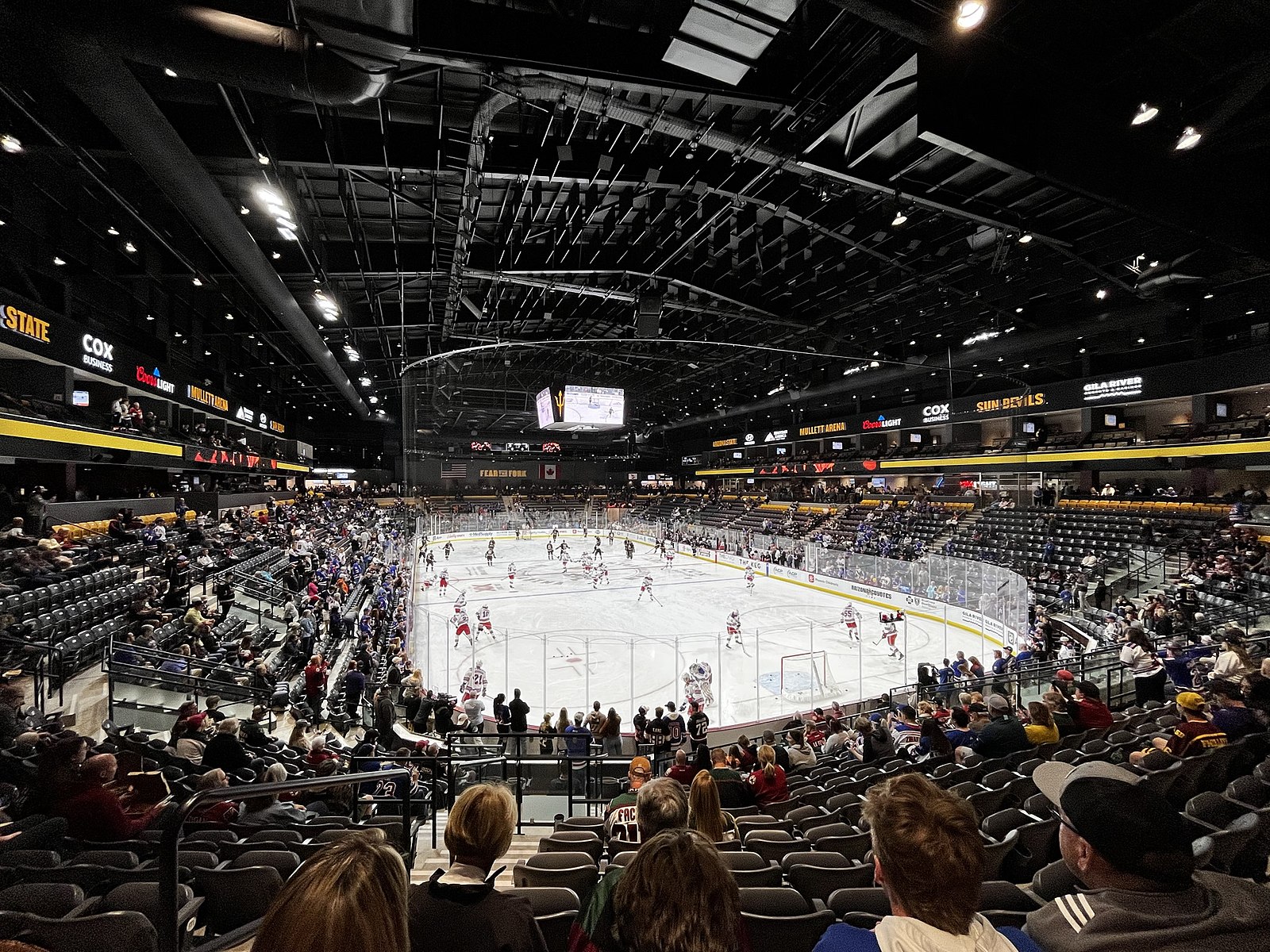The Arizona Coyotes’ hopes of building an arena in Tempe have been dashed as residents voted down propositions 301, 302, and 303. The outcome of the vote has raised concerns about the team’s future in Arizona, as it appears increasingly uncertain.
Despite NHL Commissioner Gary Bettman’s persistence in the face of economic realities, and the Coyotes team executives canvassing door-to-door to gain support for the arena deal, they fell well short of the mark on all three propositions. None of the propositions managed to secure more than 44% of the vote, proving what many hockey fans have known for years already: hockey in Arizona is a failed experiment. Following the announcement, Coyotes President & CEO Xavier A. Gutierrez expressed disappointment, stating that the organization would evaluate its next steps in collaboration with the NHL.
“We are very disappointed Tempe voters did not approve Propositions 301, 302, and 303. As Tempe Mayor Corey Woods said, it was the best sports deal in Arizona history. The Coyotes wish to thank everyone who supported our efforts and voted yes. So many community leaders stepped up and became our advocates and for that we are truly grateful. We also wish to thank the countless volunteers who worked so hard to try and make the Tempe Entertainment District a reality and the Tempe City Council for their support as well. While we wanted a different outcome, we remain grateful to all those who volunteered their time and talent. What is next for the franchise will be evaluated by our owners and the National Hockey League over the coming weeks.”
The NHL also released a statement expressing its disappointment with the referendum’s results, but stopping short of providing any direction on next steps for the team.
If this signifies the beginning of the end for the Coyotes in Arizona, it will close the book on a turbulent chapter in the franchise’s history. The team has faced financial troubles and has been in and out of various crises since its inception. In 2009, the Coyotes were on the verge of relocation to Hamilton, Ontario, after going bankrupt and almost being bought by Jim Ballsille, the billionaire behind BlackBerry.
In recent years, the Coyotes have faced financial challenges and were evicted from their Glendale home at the end of the 2021-22 season. They subsequently moved to the smaller Mullett Arena, home of the ASU hockey team, which can only accommodate 5,000 spectators and has peculiar lighting. The team had initially planned to stay at Mullett Arena for three years while awaiting the construction of the proposed Tempe arena. However, with the failed vote and limited prospects within the state, the team’s future in Arizona seems bleak at best.
The Coyotes’ struggles have been emblematic of the NHL’s efforts to expand the sport in non-traditional markets, particularly in the southern United States. This failed arena project in Tempe represents a significant setback in those efforts. The team’s tumultuous history, including financial troubles and potential relocations, has been a constant source of uncertainty for fans and the league alike. As the Coyotes face an uncertain future, the NHL and team management will likely explore alternative options and consider potential relocation possibilities.
Quebec City, Houston, Atlanta and Kansas City have all been making headlines recently as possible expansion or relocation sites. While all four markets can make viable claims to be worthy choices of receiving an NHL franchise, geographical constraints, divisional alignment and conference sizes must all be taken into account as well.
While fans north of the border would love to see an 8th Canadian franchise, it would likely mean someone currently in the Eastern Conference would need to be swapped back to the West in order to accommodate the move.
Houston would provide an in state rival for the Dallas Stars, and offers the largest market of any of the possible relocation sites. Atlanta has already had, and lost, an NHL team as recently as 2010-11, making them a peculiar choice of cities to be included amongst the serious contenders. While Kansas City has an existing hockey history with the KC Scouts franchise in the mid 70’s, and could create a natural rival for the St. Louis Blues.
Regardless of what the league and the Coyotes choose to do next, the results of the vote are a serious blow to Bettman who has been one of the most ardent supporters of the floundering “hockey in the desert” project since its inception.
Photo: Kyvuh. This file is made available under the Creative Commons CC0 1.0 Universal Public Domain Dedication
